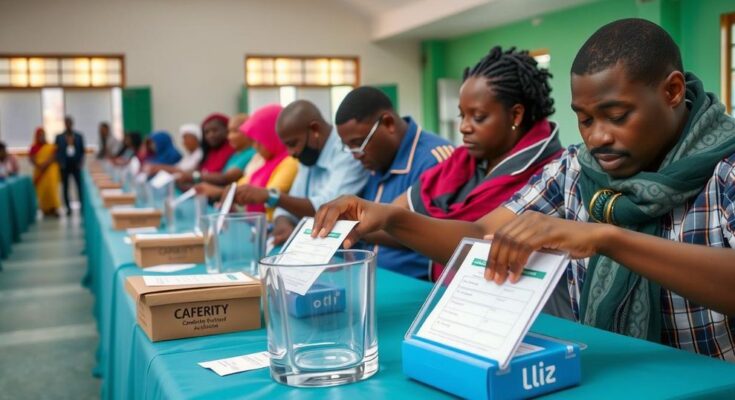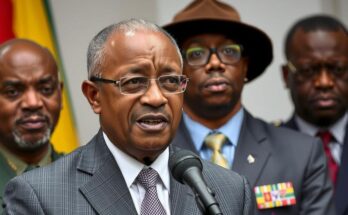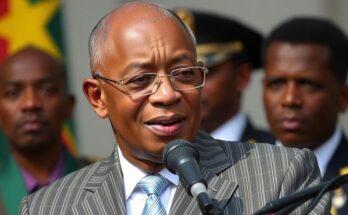Voters in Comoros are electing members to the 33-seat parliament amidst allegations of irregularities surrounding President Azali Assoumani’s previous re-election. Approximately 338,000 citizens are registered to vote, with key opposition parties either participating or calling for a boycott. Assoumani, in power since 1999, faces criticism for authoritarian behavior and the suspected grooming of his son for succession. Election results are due by Friday.
Voters in the Comoros are participating in elections for the archipelago’s 33-seat parliament amid allegations of electoral irregularities from the opposition following President Azali Assoumani’s controversial re-election last year. Approximately 338,000 registered citizens cast their votes after polling stations opened early on Sunday. The last parliamentary elections took place in January 2020, with nearly 100 candidates selected by the Supreme Court to compete in this current election. Assoumani’s opponents criticize him for undermining democracy and suggest he is preparing his son for succession when his term ends in 2029. Despite calls for a boycott from the opposition party Juwa, other factions, such as the Hope of the Comoros, are participating in the elections, believing it will reveal the governmental flaws and hasten the regime’s downfall.
The election results are anticipated by Friday, as the political atmosphere in Comoros remains tense following a history of authoritarian governance under Assoumani, who has been in power since seizing control via a coup in 1999 and winning three subsequent elections.
The political landscape in Comoros has been characterized by instability and governance challenges since President Azali Assoumani first rose to power in 1999. His re-election has been contentious, with allegations from opposition members regarding electoral malpractice and a subsequent consolidation of power, particularly concerning his son, Nour El-Fath. The opposition, particularly led by various parties, has been vocal in challenging Assoumani’s leadership, fearing he aims to establish a dynastic succession. Previous parliamentary elections in 2020 underlined ongoing political tensions, and the current elections are not only a test of Assoumani’s authority but also an opportunity for opposition factions to influence future governance.
The parliamentary elections in Comoros represent a pivotal moment in the archipelago’s democratic journey, shedding light on the ongoing power struggles under President Azali Assoumani. With accusations of electoral misconduct lingering from previous elections, the current polls are critical for opposition parties aiming to expose governmental flaws. As the electorate navigates these challenges, the outcome will significantly impact the political trajectory of the nation, especially against the backdrop of potential dynastic succession. An active engagement from diverse parties suggests that the political landscape in Comoros remains highly dynamic and contested.
Original Source: www.begadistrictnews.com.au




